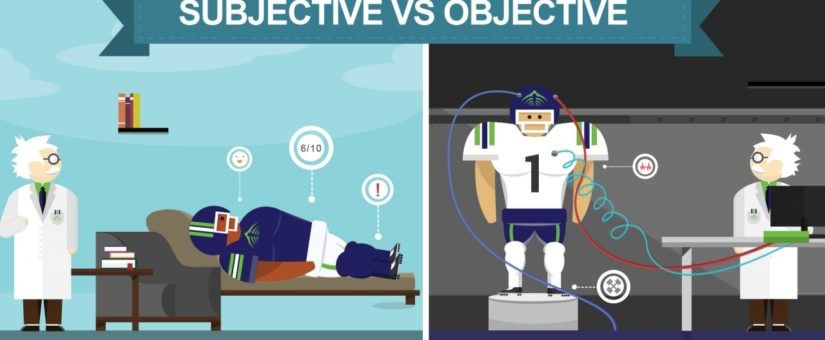
In the Way to Wisdom (1950), psychiatrist (and philosopher) Karl Jaspers (1883-1969) wrote, “the essence of philosophy is not the possession of truth but the search for truth… Philosophy means to be on the way” (p. 11).
“…the question,” writes Jaspers, “is not whether a philosophy is conscious or not, whether it is good or bad, muddled or clear. Anyone who rejects philosophy is himself unconsciously practicing philosophy” (p. 12).
In other words, even if you don’t think you have a philosophy of life, you probably do. You just don’t know it.

A philosophy of life is the mental framework (i.e. intelligence) for understanding the world and yourself in it. It’s how you decide what’s good and bad, what the meaning of life is (or, if there is one), and what the purpose of life is (or, if there is one).
How you think affects how you feel which affects what you do and how you live. People don’t think much about how (and what) they think about, but it’s quite possible that how people think is the most important thing there is.
As psychologist (and philosopher) William James (1842-1910) put it, “Philosophy is at once the most sublime and the most trivial of human pursuits. It works in the minutest crannies and it opens out the widest vistas” (50 Philosophy Classics, p. 6).
Cue music:
There are basically two kinds of people: people (a few anyway) who have a clear philosophy of life that they use to guide their actions in peace and understanding and people (everybody else) who do not.

It’s not that people don’t have a moral compass, it’s just they don’t know where it is (or how to use it).
Look at “Karens,” for example. A “Karen” is a woman who acts entitled and uses privilege to demand her way at the expense of others. If you see a “Karen” in action in real life or in a YouTube compilation, you’ll see a woman who probably thinks she’s thinking clearly, but who is clearly out of her mind.
If only “Karen” had a philosophy of life that was more congenial and less self-focused, but like Confucius said, “It is easy to hate and difficult to love.” Our default setting seems to be impulse and gut reaction.
People look to psychology and religion for answers but whereas philosophy seeks to explain right ways of behaving, psychology’s objective is not to study what is moral but to provide therapies and intervention, increasingly in pill form (as seen on TV).

As for religion, philosophers find meaning in religion to help people understand the truth of life. The difference being, whereas religion involves supernatural beliefs, ritual and faith without evidence, philosophy has no rituals and will only believe what is true by way of reasoning.

To be wise means toggling between subjectivity, “My experience of being me from my perspective,” and objectivity, “A truth independent of my individual subjectivity and bias.”

Philosophies come in many forms. Every philosophy has its opposite. For example:
You’ve got your materialists—those who consider material possessions and comfort more important than ideals (or support the theory that nothing exists except matter).

And there are idealists—those who value ideals (aka principles) more than possessions. Both groups can be further broken down into individualists—independent, self-reliant—and groupists—those who see other people as group members rather than as individuals.
Exercise #42: Spot the philosophy of life of people in this video.
What’s your philosophy?
If you don’t know what your philosophy is, try this: Look at what other philosophers have said throughout the ages to see what rings true. You can take a saying to heart and train your brain towards wisdom and change the world.

Commence brain training:
Eastern philosophy phrases (oldest to newest):
- “If you correct your mind, the rest will fall into place….
Love the world as your own self, then you can truly care for all things” – Lau Tzu (around 601-530 BC) - “The mind is everything. What you think you become…. Peace comes from within. Do not seek it without. It is a man’s own mind, not his enemy or foe, that lures him to evil ways” – Gautama Buddha (around 563-483 BC)
- “He who conquers himself is the mightiest warrior….Never do to others what you would not like them to do to you” – Confucius (551-479 BC)
- “Unruly beings are as unlimited as space, they cannot possibly all be overcome, but if I overcome thoughts of anger alone, this will be equivalent to vanquishing all foes” ―
Middle Eastern philosophy (oldest to newest):
- “Patience is beautiful” – Arabic proverb
- “A reflective, contented mind is the best possession….With an open mind, seek and listen to all the highest ideals. Consider the most enlightened thoughts. Then choose your path, person by person, each for oneself” – Zoroaster (around 628-551 BC)
- “So don’t worry about tomorrow, for tomorrow will bring its own worries. Today’s trouble is enough for today”– Jesus (1-33) Matt. 6:34
- “Instead of resisting to changes, surrender. Let life be with you, not against you. If you think ‘My life will be upside down’ don’t worry. How do you know down is not better than upside?” – Shams Tabrizi aka Rumi (1185–1248)


Excerpt from Existential Comic #344
Western philosophy (oldest to newest):
- “The brave man is he who overcomes not only his enemies but his pleasures”– Democritus (460-370 BC)
- “We are what we repeatedly do. Excellence, then, is not an act, but a habit”– Aristotle (385–322 BC)
- “Freedom is secured not by the fulfilling of one’s desires, but by the removal of desire”– Epictetus (50-135)
- “Morality is not the doctrine of how we may make ourselves happy, but of how we may make ourselves worthy of happiness” – Immanuel Kant (1724-1804)
Conclusion: Study wise phrases. Make them a habit of mind and enjoy them. You'll be a beacon of wisdom in no time, and remember: It's the path that matters, not the destination.
 This is the world. The world is as it is. It is not as it isn’t. The world is an interconnected balancing act. Some people say humans came from the hand of God. Some say they came from aliens or from rocks, water and sunshine, but any way you slice it, it’s really quite amazing.
This is the world. The world is as it is. It is not as it isn’t. The world is an interconnected balancing act. Some people say humans came from the hand of God. Some say they came from aliens or from rocks, water and sunshine, but any way you slice it, it’s really quite amazing. Like alternating current (AC) and direct current (dc), the world is positive and negative. Clickety-clack. Clickety-clack. One thing leads to another on the train of days we call life. We hope something incredible will happen—if we’re lucky, if we’re blessed, if a genie grants our wish—but magic doesn’t come from outside.
Like alternating current (AC) and direct current (dc), the world is positive and negative. Clickety-clack. Clickety-clack. One thing leads to another on the train of days we call life. We hope something incredible will happen—if we’re lucky, if we’re blessed, if a genie grants our wish—but magic doesn’t come from outside.


 In this age of entertainment, where people are immersed in computer generated fantasy or escape through drugs and alcohol, it’s interesting to see that people are still singing, “I can’t get no satisfaction. ‘Cause I try and I try and I try,” like Mick Jagger (“
In this age of entertainment, where people are immersed in computer generated fantasy or escape through drugs and alcohol, it’s interesting to see that people are still singing, “I can’t get no satisfaction. ‘Cause I try and I try and I try,” like Mick Jagger (“

 In “
In “



 Feel aware of yourself feeling aware in the world you’re in and like Daniel Boone sing, “Hey, hey, hey, it’s a beautiful day” (“Beautiful Sunday”).
Feel aware of yourself feeling aware in the world you’re in and like Daniel Boone sing, “Hey, hey, hey, it’s a beautiful day” (“Beautiful Sunday”).
 Feeling self-aware of subtle things in your surroundings with your senses is mind blowing. When self-aware, you are not bored, ever. You are conscious of feelings and desires, but not manipulated by them.
Feeling self-aware of subtle things in your surroundings with your senses is mind blowing. When self-aware, you are not bored, ever. You are conscious of feelings and desires, but not manipulated by them.




 Imagine hearing the song “
Imagine hearing the song “
 Lisa Miller, clinical psychologist at Columbia University Teachers College, says that a strong self-concept, religiosity, spiritual connection and, “An intensely felt, transcendental sense of a relationship with God, the universe, nature or whatever you identify with as a higher power” actually “confers a protective effect in all kinds of disorders” (Maclean’s, Ap. 2015, p. 41-42).
Lisa Miller, clinical psychologist at Columbia University Teachers College, says that a strong self-concept, religiosity, spiritual connection and, “An intensely felt, transcendental sense of a relationship with God, the universe, nature or whatever you identify with as a higher power” actually “confers a protective effect in all kinds of disorders” (Maclean’s, Ap. 2015, p. 41-42). To breathe, to
To breathe, to 



 If you answered true to all of the statements, you are probably an irritant to people who find life pleasurable only on condition. To think life itself is pleasurable runs countrary to industrial desires for comfort and convenience (see also:
If you answered true to all of the statements, you are probably an irritant to people who find life pleasurable only on condition. To think life itself is pleasurable runs countrary to industrial desires for comfort and convenience (see also:  Surely suffering psychologically in a Syrian city scarred by destruction and murder is not as pleasurable as having Jennifer Lopez sit on your shoulder?
Surely suffering psychologically in a Syrian city scarred by destruction and murder is not as pleasurable as having Jennifer Lopez sit on your shoulder?
 A truth can hide in plain sight when you are preoccupied. Reality is obscured by how you see the world. Freedom comes when you can see your self self–thinking.
A truth can hide in plain sight when you are preoccupied. Reality is obscured by how you see the world. Freedom comes when you can see your self self–thinking.


 The world you see has a thin film of personality covering it. You imagine who you are through flashbacks, inspirations and self-talk (see:
The world you see has a thin film of personality covering it. You imagine who you are through flashbacks, inspirations and self-talk (see: 
 If you want to slip out of “I-think-I-can” thinking and enjoy peace of mind, shift your centre outward like Copernicus and pick up
If you want to slip out of “I-think-I-can” thinking and enjoy peace of mind, shift your centre outward like Copernicus and pick up 



 The trouble with wisdom according to Slovenian Slavoj Žižek, is that it’s conformist. Wisdom can be used to rationalize participation in enjoyments better avoided or to avoid enjoyments sadly missed.
The trouble with wisdom according to Slovenian Slavoj Žižek, is that it’s conformist. Wisdom can be used to rationalize participation in enjoyments better avoided or to avoid enjoyments sadly missed.


 At its most basic, our brains are in a two-party system. One side renders decisions based on emotion (like a romantic) and the other bases decisions on reason (like a mathematician).
At its most basic, our brains are in a two-party system. One side renders decisions based on emotion (like a romantic) and the other bases decisions on reason (like a mathematician).




